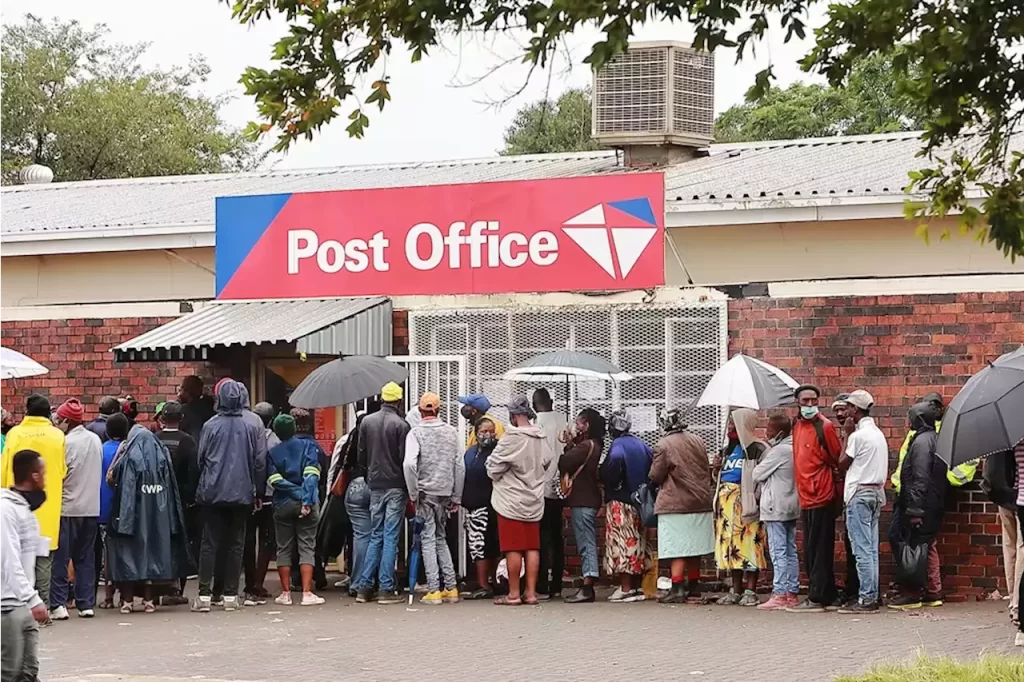Amidst the recent public outcry, following Postbank’s system glitches that mistakenly showed a lack of funds in thousands of elderly grant recipients’ accounts— leaving them without their vital R2 100 monthly state grant—most of the Postbank board members tendered their resignations on Tuesday night. This move predated communications & digital technologies minister Mondli Gungubele’s declaration of intentions to dismiss them.
The resigning board members accused the minister of adopting an “increasingly hostile and oppressive” attitude. Their statement cited three instances over three years when millions of social grants were on the brink of non-payment due to disputes with payment providers FFS and later Electronic Connect. These providers supplied the essential payment switching service software that enabled Post Office and subsequently Postbank to distribute over 6-million grants.
The contractual relationship with these companies, established before the current board’s tenure, became the core point of contention with Minister Gungubele. Allegedly, during a June meeting, the minister posed pointed questions to each board member but denied them the opportunity to respond.
Gungubele, during a press briefing on Thursday, noted the board members’ pre-emptive resignations, days ahead of his planned action to remove them for governance violations. He expressed dissatisfaction with the extension of a specific contract, without divulging further details.
The notable resignations coincide with intensified scrutiny by MPs of Postbank’s handling of welfare grant distributions. This mismanagement left thousands of pensioners without their funds for an entire week, underscoring the bank’s leadership and governance vacuum.
Central to the controversy is a R140m contract referenced by Gungubele. In 2018, after the SA Post Office assumed grant payment responsibilities from the contentious firm Cash Paymaster Services, it required payment switching services. Despite intentions to develop an in-house payment software, Postbank continued leveraging services from FFS and subsequently Electronic Connect.
Following unpaid dues by the Post Office in early 2021, FFS ceased its services to around 160,000 recipients. As a repercussion, the SA Social Security Agency (Sassa) imposed a R17m fine on Postbank. In response, Postbank initiated payments to FFS, attempting to forge a fresh contract without undergoing the standard tender process.
In 2022, the Treasury rejected this new contract due to its irregular inception. Consequently, consulting firm KPMG was commissioned to scrutinize the original contract’s roots. Despite Minister Gungubele’s assertion of found irregularities, the board maintained no wrongdoings on the parts of Postbank, the Post Office, or the involved service providers.
Amidst ongoing investigations, payment disputes continued to simmer. By December 2022, Electronic Connect threatened service cessation, prompting an urgent R46m payment. This issue resurfaced in July 2023, with a contested sum of R26m. The board’s resulting court intervention ensured continued grant disbursement.
The unfolding events spotlight the pitfalls of irregular contract formations that may lead to detrimental audit outcomes— a concern previously raised by Transnet and Eskom.
In a climactic move, Postbank transitioned to a new payment switching service provider. This recent switch seemingly triggered the technical mishaps, causing a delay in the pensioner grants’ disbursement a fortnight ago.
